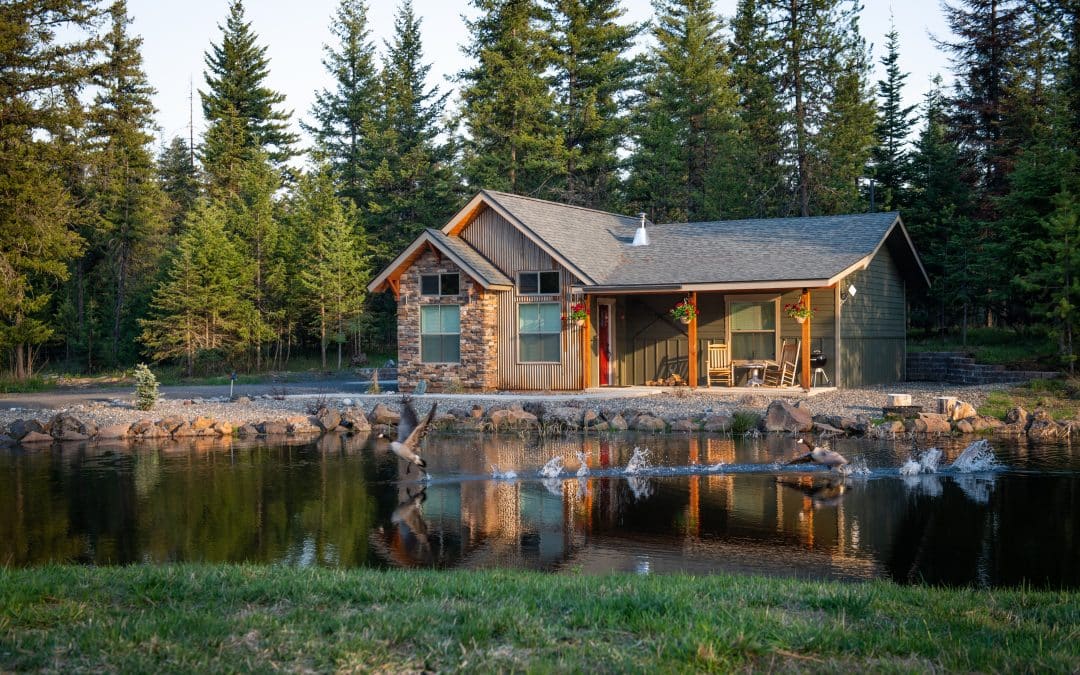Who doesn’t dream of living in a mansion? Most of us do at some point in our lifetime. Maybe we want lots of bedrooms and baths. Or perhaps a huge, luxury kitchen is part of our plans for the perfect house. Maybe you’d like to have a spacious backyard with a pool and waterfall. Or a house with room to entertain dozens of friends at the same time. But did you ever stop to think that smaller homes might be better?
Many of us feel like we’ve “made it” if we’re the owners of a large home. We like to show our family and friends that we’ve succeeded in our life goals. We want to prove that only the best is good enough for us.
But now that post-pandemic recessions are commonplace, homeowners – including those who’ve owned for a while and those who are buying their first house – are looking at things a bit differently. Though you might find a good deal during a recession, more and more, we hear real estate experts urging us to “buy only as much house as you need”.
That’s great advice. No one wants to be in over their head, so to speak, and there’s no need to pay for a home that’s way more than you’ll use as far as space is concerned. So, if you’re ready to build, it’s time to consider that smaller might be better.
The costs associated with larger homes
Back in the 1950s and 1960s, the average Canadian home was about 1,000 square feet in size. Most had two or three bedrooms and many had only one bathroom. Most of us, these days, would be aghast if we only had one bathroom! Today, that number has doubled, with the average home measuring 2,000 to 2,500 square feet.
Of course, mortgages have doubled as well, putting homeowners in more debt than ever before. Property taxes and homeowner’s insurance will also cost more with a large house. Overinvestment in a large home also means that you’ll pay more to heat the house in the winter and cool it in the summer, for other regular maintenance, and likely for landscaping and outdoor perks as well.
This big house madness also impacts what you’ll have left in the later years of your life when retirement is looming close. Many individuals who spent the bulk of their income on a large home early in life are regretting the investment and recognize that smaller homes might have been better.
So, if you’re planning on a new build, how do you decide how much house you need and when enough is enough?
How big of a home do you truly need?
It’s wise to ask yourself a few questions before you begin to make plans with your builder or architect.
-
What are my priorities?
– Do you view your house (or potential house) as a place where you’ll be throwing lavish parties or entertaining dozens for the holidays? Or is it more of just a place to eat and sleep? If you have dreams of traveling or other plans outside of home buying, perhaps you might consider how a smaller home with a smaller mortgage might help you meet all your goals. You might also have a dream location but can’t afford a large house there, like on the water. If so, a smaller house may allow you to be in a place where you want to be but at a lower cost.
-
Is this your forever home or just a step along the way?
– Sometimes a “right now” home is a good choice if you’re not ready or able to buy your perfect forever home yet. In that case, a smaller home that’s a stepping stone to a larger house might be the right next move for you. This might be a home that you’ll only live in for the next 5-10 years. That’s okay. The perfect home for you NOW, no matter the size, is still a good investment.
-
Is privacy super important for you or your family members?
– If having your own space is essential, whether it’s for relaxation or for work, a small house might not be ideal. A large home offers plenty of alone time. However, if you love having your family members nearby and enjoy a close-knit family environment, smaller might work for you.
-
What does your future income look like?
– If you are at the beginning or middle of your career and making lots of money, that’s great. However, if you’re reaching the end of your career, your income may soon be decreasing. That large home might eventually become a burden. So think about what size home can make you happy but won’t have you dreading that mortgage payment when retirement rolls around. And remember, upkeep also remains high on a large house, even if your mortgage is paid off by the time you retire.
We can help you decide if smaller might be better
At Bowline Construction, we’ve built homes of every shape and size. We’re eager to chat with you about the style and size of your home and what might best fit your budget and lifestyle. The experts at Bowline can review plans and offer specifics on upfront costs as well as those extras you might not have considered. This way, you can make an informed decision about the size of your new build.
For more information or to schedule an appointment with our new home professionals, call us at 778-808-3725 or complete the contact form on our website.

